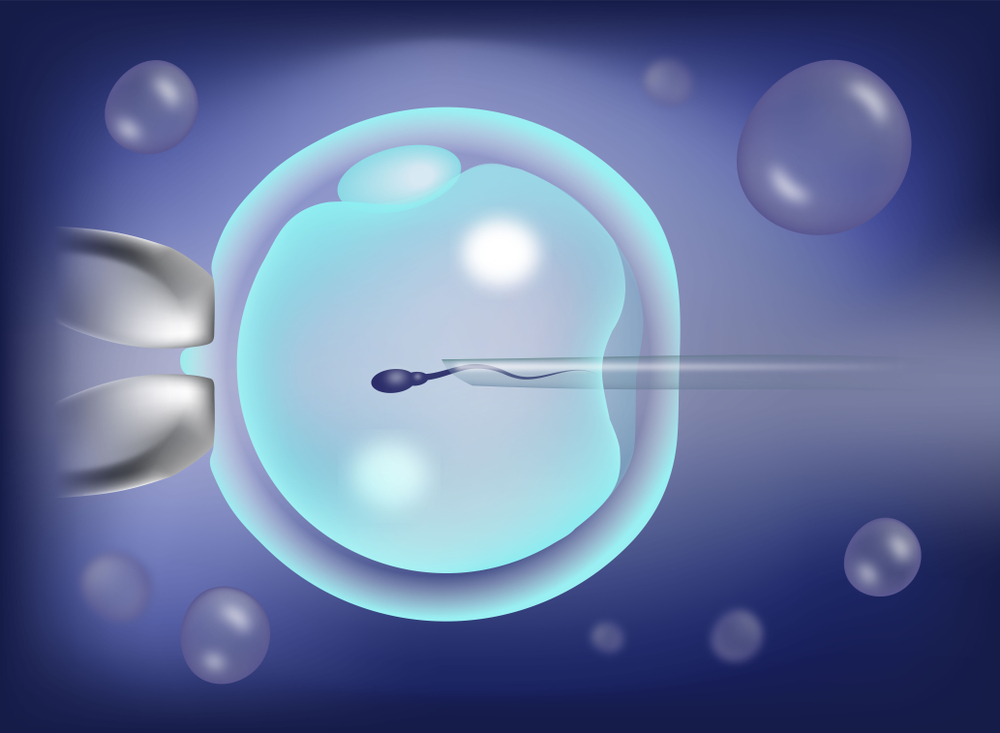Infertility shouldn’t be seen just as a women’s issue
Infertility specialist, gynaecologist, and obstetrician Dr. Arockia Virgin Fernando (Consultant with Practo) says when couples are unable to have children, both men and women need to be evaluated. This is being ignored in India, especially in the rural or semi-urban setups. Doctors often evaluate only the women and leave out the men, she says.
Infertility is often perceived as a women’s health issue and they have to bear the brunt of the stigma around it. It shouldn’t be so. Research says that women are physically more burdened than men by fertility treatments.
A study conducted in India in 2017 found that there were significant gaps in women’s knowledge and awareness about fertility practices. These gaps were about how fertility declines with age, ovulation, and myths regarding oral contraceptives and risk of infertility. “Higher socioeconomic status and better education does not translate into improved knowledge and awareness of factors affecting fertility,” the study said.
Femoai spoke to infertility specialist, gynecologist, and obstetrician, Dr. Arockia Virgin Fernando (Consultant with Practo) about what causes infertility, and how both men and women contribute to it. Edited excerpts:
WHAT IS INFERTILITY? WHEN IS A COUPLE CONSIDERED INFERTILE?
A couple is considered infertile if they don’t conceive after 12 months of regular sexual intercourse during the fertile period (ovulation), without any contraceptive usage. But if the couple is very young, say under 25, then we can extend this period to up to two years. But there are exceptions, the one or two years criteria doesn’t apply to everybody. If a woman is 35, or is approaching 35 or above 35, she should see the fertility expert after six months of trying. This constitutes regular trying every month during ovulation without any contraceptives.
There are exceptions, like women who have had pelvic surgery, who have had their ovaries removed because of some cyst or cancer. They are at a risk of going into premature menopause, so they have to approach a fertility expert as early as possible.
There are exceptions, like women who have had pelvic surgery, who have had their ovaries removed because of some cyst or cancer. They are at a risk of going into premature menopause, so they have to approach a fertility expert as early as possible.
WHAT ARE THE CAUSES OR REASONS FOR INFERTILITY IN WOMEN?
Your reproductive system consists of these important parts: the ovaries, fallopian tube, uterus, and the cervix. There are various factors for infertility. The first and foremost is the ovarian factor, some people don’t ovulate regularly. They don’t get their period on time, and have irregular ovulation. There are women who are going into premature menopause or other medical problems, infertility in these cases can be attributed to an ovarian factor.
Some women have a tubal block. The fallopian tube is where the egg and the sperm meet and fertilisation happens. The tubes have to be open as well as functionally normal. In some women, because of previous infections or sexually transmitted diseases (STDs) or pelvic inflammatory disease, the tube can be damaged. In some cases, if there are infections in the vagina, they can go into the fallopian tube. The infection can damage the tube and not allow it to function normally.
Some women might have a block because of previous surgeries, like an open appendicectomy. In these cases, the tube can be pulled to one side, the alignment between the uterus, tube, and the ovaries is not there. And because of that, there might be a tubal block, and they won’t be able conceive.
Next is the uterus, some women have a very small uterus genetically, some have double uterus, some have a septum inside the uterus which can divide the uterus into two halves. These women conceive but they can abort easily.
Some women have an infection on the mouth of the uterus. After a sexual intercourse, the semen or the sperm is deposited in the vagina, if there is an infection of the cervix, it will filter the sperm and not allow it to go inside. Because of that they don’t conceive.
HOW ABOUT MEN, WHAT CAUSES INFERTILITY IN MEN?
Diabetic men might have erectile dysfunction. They might not be able to penetrate or ejaculate. Some men, due to medical problems or previous injuries to their genitalia, might have damaged sperm or the sperm count might have come down. The sperm count can also fall due to obesity. These factors can lead to a condition called azoospermia in some men, wherein there is fluid but no sperm. These are the main problems.
Diabetic men might have erectile dysfunction. They might not be able to penetrate or ejaculate. Some men, due to medical problems or previous injuries to their genitalia, might have damaged sperm or the sperm count might have come down. The sperm count can also fall due to obesity.
Men can also have infections. The sperm have to move in order to go inside the uterus. Because of infections sperm might not move well. That is also a common reason for infertility.
ARE THERE WOMEN WITH PRE-EXISTING CONDITIONS WHO SHOULD SEE A SPECIALIST EARLY?
Some women don’t get their periods regularly. Some might have had regular periods initially after they attained maturity and then it might have become irregular. There are women who don’t bleed for months. There are also women who might not get periods unless they take medicine for it. These are very common reasons and they ignore it, sometimes up until marriage, and even after marriage. It is a serious issue.
The reason for period related problems can be that they have polycystic ovarian syndrome (PCOS) because of which there is a hormonal imbalance and they don’t ovulate. This is easily treatable.
Some women have a genetic condition where they have a chromosomal problem, they might be born with small ovaries with less eggs. These women are losing their eggs as the years go by and they might not be getting their periods on time. Women with PCOS are at risk because their egg reserve is depleting and they might end up with premature menopause.
Some women don’t bleed even after they take medicine to induce it, and others who have not attained maturity at all but they don’t reveal it to their husband or others.
Women have to reach out to the infertility specialist as early as possible. We have to determine the reasons and find the best course of treatment.
HOW ABOUT MEN, ARE THERE ANY PRE-EXISTING CONDITIONS, THAT THEY SHOULD CONSIDER AND GO SEE A SPECIALIST EARLY IF THEY WANT CHILDREN IN THE FUTURE?
In a man, repeated infections, injuries in the past, or mumps are conditions that can impact fertility. It is better to meet a fertility specialist and determine what their condition is. Many reach out to the infertility specialist in the later stages where we cannot do anything. It is better to get yourself checked and clear it out early.
INFERTILITY IS OFTEN LOOKED AT AS A WOMEN’S ISSUE, WHAT DO YOU HAVE TO SAY ABOUT THAT?
Infertility is both a men’s and women’s issue. It can be attributed to men in about 30% of the cases. It can be attributed to both men and women in 30% of the cases, and to women in another 30%. In men, erectile dysfunction is very common now because of stress, long working hours, sedentary lifestyle, and obesity. It is a very important reason not just for sexual dysfunction but also infertility. Many have problems with their sperm, because of exposure to radiation, sedentary lifestyle, and environmental pollution. Even if their sperm count is normal, there might be DNA breakage in the sperm leading to infertility or repeated abortions.
Infertility is both a men’s and women’s issue. It can be attributed to men in about 30% of the cases. It can be attributed to both men and women in 30% of the cases, and to women in another 30%.
The man plays an important role. It is not enough if we only evaluate the women. Doctors usually check the general body condition of women, their uterus and ovaries, their thyroid level; but we have to examine men as well. We might miss diabetes in men, or early stages of hypertension or high blood pressure. These can cause erectile dysfunction and problems with their sperm. That is often ignored in India, especially in the rural or semi-urban setup. They often evaluate only the women and leave out the men. They will do all sorts of treatment on the women, and later they will find that it was the man’s issue. Both men and women have to be evaluated.









Patricia Rodriguez
Ut wisi enim ad minim veniam, quis laore nostrud exerci tation ulm hedi corper turet ipsum dolor sit amet, consectetuer adipiscing elit, sed diam nonummy nibh euismod tincidunt ut laoreet dolore magna aliquam erat volutpat. Ut wisi enim ad minim veniam, quis nostrud exerci tation ullamcorper suscipit lobortis nisl ut aliquip ex ea commodo consequat.